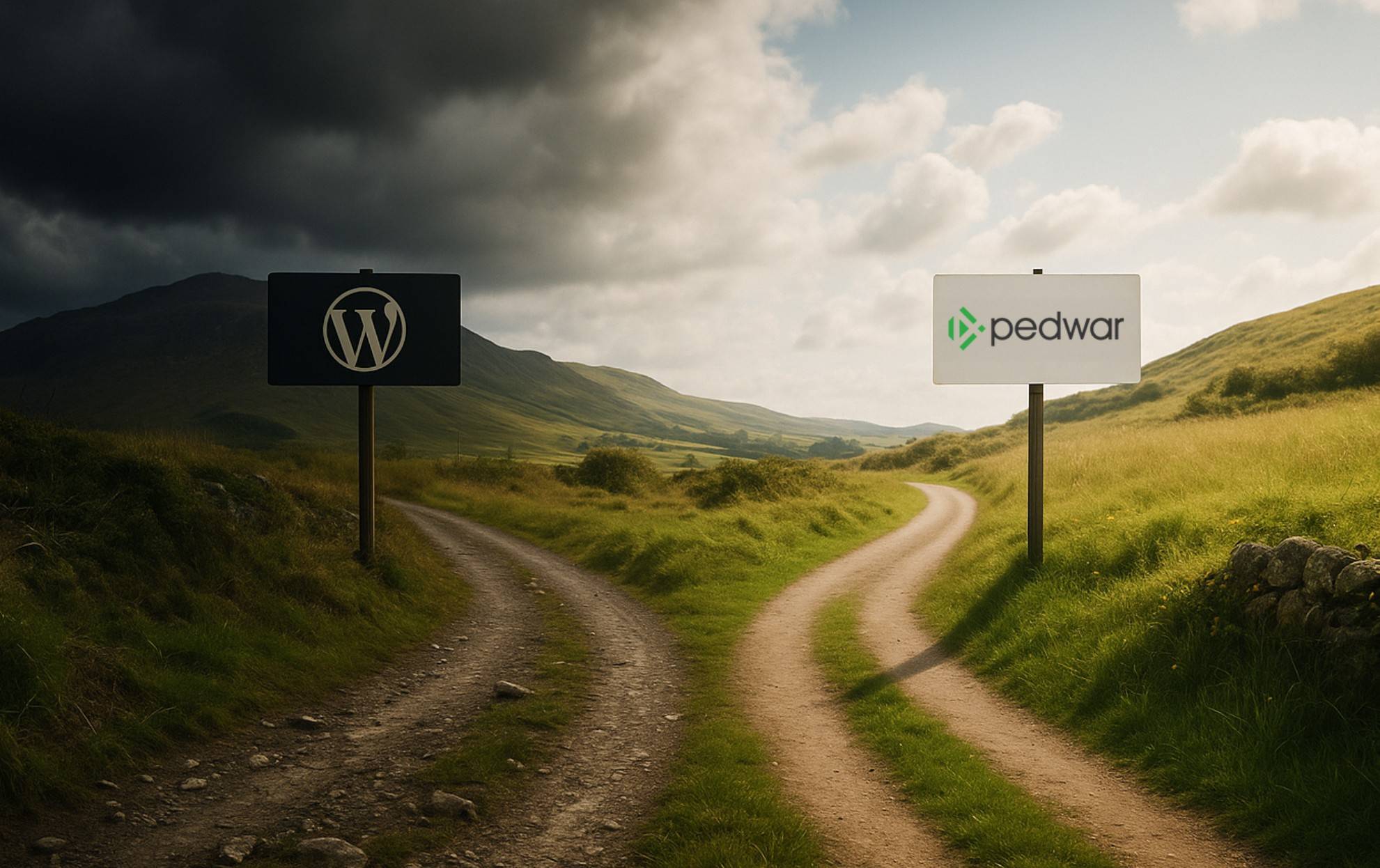WordPress plugins seem brilliant at first. They let you add functionality without touching a line of code. Need an online booking system for your Swansea salon? Download a plugin. Want to showcase your Gower photography portfolio? Another plugin sorts that.
The problem isn't plugins themselves, it's the fundamental approach. WordPress forces you to bolt on functionality after the fact, like adding extensions to a house that wasn't designed for them.
Each plugin you install is like hiring a new employee for your website. Some work efficiently in the background. Others... well, they're the office equivalent of someone who takes three tea breaks an hour and leaves the printer jammed.
Badly coded plugins can slow your site to a crawl. They load unnecessary scripts, make database queries every time someone visits, and sometimes conflict with each other in spectacular ways. Your visitors don't care why your site is slow, they just leave.
WordPress wasn't built for this. It started as a blogging platform and has been stretched far beyond its original purpose.
Here's what happens when plugin creep takes hold:
Your homepage that used to load in two seconds now takes eight. Google notices. Your search rankings slip. Fewer people find your site. The ones who do find it often bounce before it fully loads.
You install another plugin to "fix" the speed problem. The irony would be expensive if it wasn't so damaging to your business.
Some plugins create database entries every time someone sneezes near your website. Over months, your database swells from manageable to massive, slowing everything down.
Plugin A loads jQuery version 2.1. Plugin B needs version 3.0. Your site throws JavaScript errors and features stop working. Visitors see broken functionality and assume your business is equally unreliable.
That free plugin you downloaded might not get regular updates. Hackers love outdated plugins, they're easy targets for compromising websites.
Some plugins use more server resources than your entire theme. They're the digital equivalent of running a tumble dryer for an hour just to dry a single sock, it's wasteful and just doesn't make sense.
Whether you run a Swansea restaurant whose booking systems stopped working because of plugin conflicts, or a Cardiff store whose online payment processing failed during busy periods, each broken feature represents lost customers and damaged credibility.
At Pedwar, we used to build WordPress sites. We've seen firsthand how plugin dependency creates ongoing headaches for Welsh businesses. That's why we developed our own content management system. No plugins required. Ever.
When you need a contact form, we build it directly into your website's core functionality. Need an online booking system? It's integrated from day one, designed specifically for your business needs. Need e-commerce functionality? It's part of the architecture, not an afterthought.
Everything works together because it was designed to work together.
If you need something new from your website at a later time, no worries. We can build in any additional functionality as needed when it's required. Our CMS is built in a modular way and can be extended and added to easily without compromising performance.
Without plugins loading unnecessary scripts, our sites typically load 3-5 times faster than equivalent WordPress installations. Your customers notice the difference immediately.
No third-party plugins mean no third-party vulnerabilities. Your site's security is entirely under our control and constantly maintained.
No more plugin updates breaking your site. No more compatibility issues. No more wondering if that new plugin will play nicely with your existing setup.
WordPress might seem cheaper initially, but factor in:
Suddenly, a properly built bespoke system looks like the bargain it actually is.
Your WordPress site might be suffering from plugin bloat if:
Sound familiar? You're not alone.
Swansea businesses who've switched to our bespoke CMS report immediate improvements. Faster loading times, zero downtime, and most importantly, they can focus on running their business instead of managing their website's plugin chaos.
One Mumbles restaurant owner told us: "I used to dread updating plugins, something always broke. Now I don't even think about the website. It just works."
Moving away from WordPress feels daunting, but it doesn't have to be. We handle the entire migration process, ensuring your content, SEO rankings, and existing functionality transfer seamlessly.
More importantly, we build in all the features you actually need without the bloat you don't.
WordPress plugins aren't just a performance problem, they're a business problem. Every second your site takes to load costs you customers. Every plugin conflict damages your reputation.
Your website should work for your business, not against it.
At Pedwar, we believe Welsh businesses deserve better than cobbled-together WordPress sites held together with dozens of plugins. They deserve websites built properly from the ground up, designed to perform flawlessly for years without the constant maintenance headaches.
Sometimes the best plugin is no WordPress at all.
